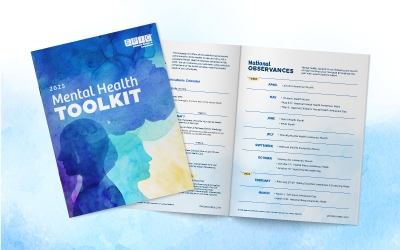Quick Facts
- The Internal Revenue Service’s (IRS’s) Use-or-Lose rule states that Flexible Spending Account (FSA) funds must be spent by the participant within the FSA’s plan year. Unused funds at the end of the plan year are forfeited to the plan.
- Exceptions to the rule include a carryover or grace period feature.
- Funds left in an FSA from a carryover will impact Health Savings Account (HSA) eligibility.
- There are four IRS and Employee Retirement Income Security Act (ERISA) approved options for utilizing forfeited funds.
Background
FSAs are subject to the Use-or-Lose rule, meaning that any unused funds remaining in the FSA at the end of its plan year will be forfeited by the participant. This rule is derived from Section 125’s prohibition on any cafeteria plan benefit that defers receipt of compensation. As with just about any other rule in compliance, there are also a few exceptions to the Use-or-Lose rule that can be implemented as part of a plan’s design as described below.
The forfeited funds are referred to as ‘experience gains,’ and become available to the plan sponsor for restricted use. The following are exceptions to the Use-or-Lose rule, and how plan sponsors may use experience gains.
Exceptions to the Use-or-Lose Rule
Carryovers and grace periods are optional plan design features a plan may implement that function as exceptions to the Use-or-Lose rule. An FSA plan may choose to implement either a carryover or grace period but cannot implement both. Further, both can potentially affect a participant’s HSA eligibility for the subsequent plan year which should be taken into consideration.
Carryovers
As a plan design feature, FSAs may offer carryovers of up to $500 (indexed annually – $570 for 2022) of any remaining unused funds at the end of a plan year to be carried over and available to reimburse qualified medical expenses incurred in a subsequent plan year. A plan may choose to set the maximum carryover limit lower than the indexed amount. The plan could also be designed to limit the ability to carry over unused funds. For example, some plans require an election to contribute to the next plan year in order to carry over a previous year’s balance, while other plans require a minimum unused balance to carry over (e.g., must have $100 or more remaining to carry over with no new contribution election for the next plan year). Without such a limit, the carryover balance could continue to be available indefinitely, as long as the employee remains eligible for the FSA. The carried-over amount will not count against or otherwise affect the limit on annual FSA salary reductions in a subsequent plan year (i.e., an employee with a carryover balance from the 2021 plan year could still elect up to $2,850 for the 2022 plan year). Further, the carried-over amount cannot be cashed out or converted to any other benefit.
Any unused amounts remaining in the FSA at the end of the plan year that exceed the maximum carryover amount will then be forfeited.
For FSAs, when a qualifying event causes a loss of eligibility, Consolidated Omnibus Budget Reconciliation Act (COBRA) continuation must be offered if the FSA is underspent (i.e., if the balance remaining in the FSA exceeds the COBRA premiums that would be required for the remainder of the plan year). In determining whether the account is underspent, guidance in IRS Notice 2015-87 (Q&As #21-23) indicates that the benefit still available includes the carryover, but the COBRA premium should not take the carryover into account. If the benefit still available for the plan year, including the carryover, exceeds the amount the employee would have to pay via COBRA premiums for the remainder of the plan year, COBRA should be offered. Further, if the account is underspent and the participant does elect COBRA, the carryover should be included in the COBRA coverage that the participant is entitled to receive during the remainder of the plan year in which the qualifying event occurs.
Grace Periods
In general, FSA funds can only be used to pay for or reimburse qualified medical expenses that are incurred during the FSA’s plan year, however, as a plan design feature, FSAs may implement a grace period of up to 2.5 months after the end of a plan year. With a grace period, participants may access any remaining unused amounts at the end of the immediately preceding plan year to pay for qualifying medical expenses incurred during the grace period. The grace period may be up to 2.5 months, but a plan may choose to set the grace period for a shorter amount of time.
Any unused amounts remaining in the FSA at the end of the grace period will then be forfeited.
NOTE: The grace period is different than the plan run-out period. Whether the plan year offers a carryover or grace period feature, or neither one, the plan will typically provide a period of 60 to 90 days beyond the plan year to submit receipts for reimbursable expenses that were incurred during the FSA plan year. The run-out period does not provide any additional time to incur expenses.
Effects of FSA Carryovers and Grace Periods on HSA Eligibility
A participant will be ineligible for an HSA for the entire plan year of a general-purpose FSA unless the individual loses eligibility for the FSA prior to the end of the plan year. Regardless of whether an FSA features a carryover or a grace period (or neither), if the FSA has a zero balance at the end of the plan year, then the participant will be HSA-eligible immediately after the end of the FSA plan year, however, if there is a remaining balance in the FSA at the end of the plan year and the FSA features either a carryover or grace period, HSA eligibility will be affected.
If the FSA has a carryover, and there is a remaining balance in the FSA that is carried over, then the participant will be HSA-ineligible for the entire plan year immediately following the FSA’s plan year. This is true unless the plan permits employees to either decline or waive their carryovers prior to the beginning of the next plan year, or permit individuals who have a year-end balance in their FSA to elect to participate in an HSA-compatible FSA (i.e. a limited-purpose FSA; a post-deductible FSA, or a combination of the two) and have any unused general-purpose amounts carried over to the HSA-compatible FSA.
If the FSA has a grace period, and there is a remaining balance in the FSA that can be spent during the grace period, the participant will be HSA-ineligible until the grace period is over. The employer could amend the plan and make it a limited-purpose and/or post-deductible FSA during the grace period only, but the amendment must be applied on a uniform basis for all (i.e., participants could not be given a choice between a limited-purpose or general-purpose FSA). Employees who have a significant balance or who are not participating in the High Deductible Health Plan (HDHP) may not like this option. Without making any changes, the problem may be somewhat alleviated by the “full-contribution” rule for HSAs, which allows an individual who is HSA-eligible for only a portion of the year to make a full year’s worth of HSA contributions, so long as certain additional requirements are met (need to maintain eligibility in the next 12 months). Therefore, being ineligible for a few months due to an FSA grace period affects the timing of HSA contributions but will not necessarily prevent making the full HSA contribution.
Experience Gains
For the FSA, some participants will underspend their accounts due to not incurring enough eligible expenses during the plan year, while others may overspend their accounts if they submit expenses for reimbursement up to the full annual election early in the plan year and then participation in the plan ends mid-plan-year. The forfeitures the employer obtains from the underspent accounts may be used to offset any losses from the overspent accounts. If there is money left over after covering the reimbursements provided during the plan year, those experience gains should be used by the employer in accordance with IRS and ERISA requirements.
In general, there are four options for utilizing experience gains that comply with both IRS and ERISA requirements: (I) defray plan administration expenses; (II) reduce salary reduction amounts for the following plan year; (III) increase the annual coverage amount; or (IV) provide to employees as a cash refund. The following sections go further into the details of each of these options.
Defray Plan Administration Expenses
In order to constitute a reasonable administration expense, an expense must meet the following requirements:
- The payment must not be prohibited by the plan document (e.g., if the plan document requires the employer to pay administrative expenses, then forfeitures may not be used for those expenses);
- The expense must relate to health FSA administration and cannot be a “Settlor” expense or an expense related to another plan;
- The expense must otherwise be reasonable (i.e., direct expenses properly and actually incurred in the performance of a fiduciary’s duties to the plan); and
- Payment of the expense must not be an ERISA prohibited transaction.
Plan administration expenses may include expenses of a Third-Party Administrator (TPA) or another service provider.
Reduce Required Salary Contributions
Reducing the required salary contribution is also sometimes referred to as a “premium holiday.” For example, the employer could use the experience gains to reduce the employees’ contributions by $10 per month. In general, this option is generally most attractive to employers. It is administratively convenient and best complies with both IRS and ERISA requirements.
Keep in mind that allocation of experience gains must be on a reasonable and uniform basis and NOT based on individual claims experience.
Increase Annual Coverage Amount
The employer could increase the amount available for reimbursement for the plan year in addition to what was elected by the employee (similar to an employer contribution to the FSA). This could be above and beyond the annual contribution limit that applies to employee salary reductions (e.g. $2,850 for 2022); however, this option may not be as attractive an option as decreasing salary reductions, as coverage may not stay at the higher level and may contribute to experience gains again for the following year.
Provide Cash Refunds
Another option is to allocate experience gains to participants in cash. If cash is returned, the amounts will be considered W-2 wages for purposes of the Federal Insurance Contributions Act (FICA) and federal income tax withholding.
If the employer chooses to distribute the experience gains to participants via a premium holiday, increase in the annual coverage amount, or as a cash fund, the employer must do so on a uniform basis and NOT based on individual claims experience. In other words, the amount should be divided evenly amongst all participants or weighted to reflect their elected contribution, without taking actual utilization into account.
This alert was provided by Benefit Comply, our compliance partner. Visit benefitcomply.com/hr-support/ for more information on employer HR compliance support.
EPIC Employee Benefits Compliance Services
For further information on this or any other topics, please contact your EPIC consulting team.
Learn About Our Employee Benefits Compliance Services
EPIC offers this material for general information only. EPIC does not intend this material to be, nor may any person receiving this information construe or rely on this material as, tax or legal advice. The matters addressed in this document and any related discussions or correspondence should be reviewed and discussed with legal counsel prior to acting or relying on these materials.
DOWNLOADABLE RESOURCES
THE 2022 COMPLIANCE WEBINAR SERIES IS HERE!
Register for Our 2022 Employee Benefits Compliance Webinars
Sign up for our Compliance Matters Newsletter
You’ll receive our monthly newsletter, as well as special compliance alerts and invitations to our compliance webinars
Related Content
Products
Employee Benefits Consulting
Our dedicated benefits team is focused on delivering better outcomes – to both your benefits program and ...
Products
Compliance
We provide comprehensive consulting services and in-depth education regarding the ever-changing employee ...
Industries
Healthcare
Our healthcare practice is known around the world for its expertise and passion in delivering exceptional ...


